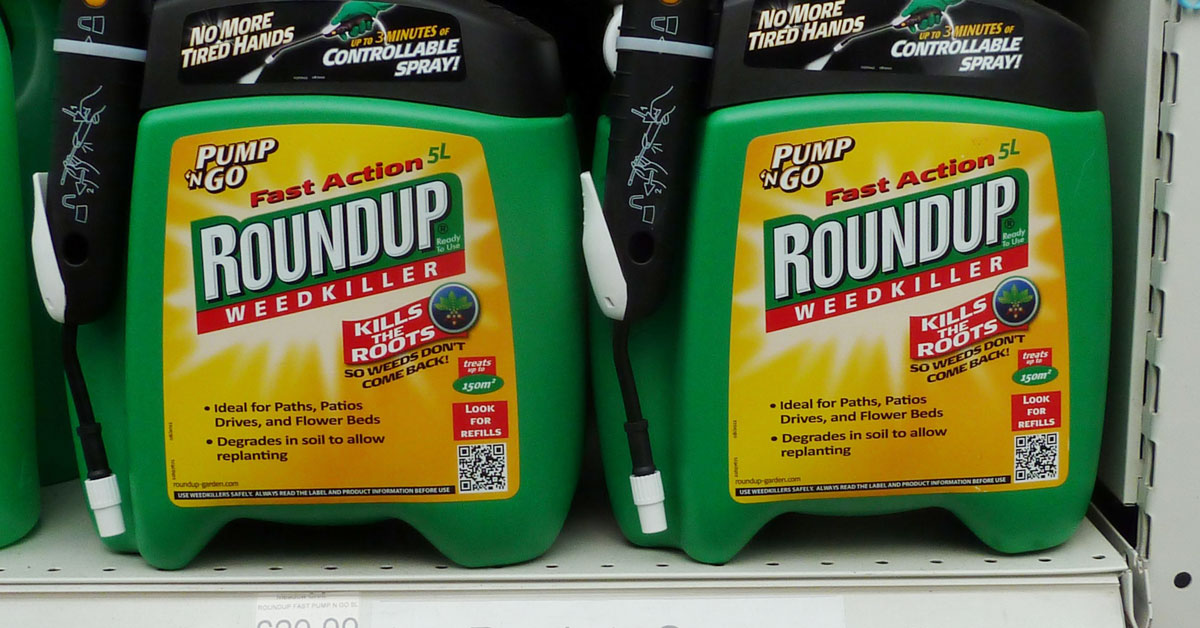
EFSA publishes critical comments in way that effectively hides them! By Claire Robinson and Jonathan Matthews
While a strong scientific consensus now exists on the need to move away from an agriculture doused with pesticides, regulatory agencies continue to allow the marketing of new “plant protection” products — and the regulation of glyphosate highlights this failure, according to an article in Le Monde by their science correspondent Stéphane Foucart.
Recently the National Commission for Ethics and Alerts in Public Health and the Environment (cnDAspe), an advisory commission overseeing ethical rules applying to scientific and technical expertise on public health and the environment, called for an investigation into European regulatory expertise in relation to glyphosate, not just looking at experts' conflicts of interest but also at the scientific relevance of their approach. “In a world dominated by technology, expertise should always be the object of scientific and democratic vigilance,” Foucart writes.
Hiding the criticism?
That's a timely reminder, Foucart says, because the European Food Safety Authority (EFSA) has published in a remarkably non-transparent manner the critical comments it received on the favourable preliminary expert report on glyphosate concocted by four Member States (France, Sweden, Netherlands and Hungary). The 450 comments have been made available only in a non-searchable format, scattered across 142 pages of EFSA's website. Even once each comment is displayed, you have to click again to find out who wrote it and yet again for any accompanying documents.
Examining some 450 comments one by one, at the cost of long hours of relentless clicking, is almost humanly impossible. So Le Monde asked EFSA for the comments in a searchable format, only to be told by EFSA that it wasn’t possible. But a data journalist at Le Monde managed to do it in just ten minutes! And after examining EFSA’s website, the journalist also concluded that there was no technical barrier to EFSA displaying the comments in a more user-friendly fashion.
Safety assertions contested
So what do these comments, which are theoretically public but have been made non-searchable, have to say? As an example, the French National Institute for Health and Medical Research (Inserm) contests most of the key assertions of the favourable European preliminary glyphosate assessment, which, Foucart says, “concluded glyphosate is neither genotoxic, nor carcinogenic, nor endocrine disrupting, and is not toxic for reproduction” and that there is “therefore nothing to prevent its re-authorisation”.
In response to the assertion that glyphosate isn't genotoxic, Inserm comments, ”The studies showing that glyphosate is genotoxic are more numerous and of better quality“ than those suggesting the opposite, and they are consistent with the induction of oxidative stress seen in different species and cellular systems, sometimes at exposure levels similar to those encountered in the environment.
Inserm also criticises the failure to take into account meta-analyses (published in the scientific literature) of epidemiological data that establish a link between the use of glyphosate-based products and certain cancers.
And the public research body also disagrees with the conclusions of the preliminary report that glyphosate lacks endocrine disrupting effects and neurotoxicity.
The HBM4EU (the consortium of labs from 30 countries for human biomonitoring) is equally critical: ”Three recent epidemiological studies have found associations between maternal urinary glyphosate concentration and risks of preterm birth and shorter gestation.” But all three are ignored in the preliminary report.
Dismissing independent evidence
Why is there such a big gap between these experts and the preliminary report to the regulators? Foucart says the cnDAspe provides the answer, when it notes that more than 90% of the scientific literature on glyphosate had been ruled unreliable or irrelevant by the regulators, leaving the assessment of risk based on data provided by industry.
This is also why the criticisms of so many leading experts are highly unlikely to change EFSA’s conclusions on glyphosate, says Foucart. More broadly, it also helps us understand why regulators are failing so completely to restrict pesticide use when there is now no scientific authority that does not recommend a rapid exit from agriculture’s unsustainable dependence on substances that are not just a burden on public health, but are precipitating an unprecedented collapse of biodiversity.
Photo credit: London Permaculture. Reproduced under Attribution-NonCommercial-ShareAlike 2.0 Generic (CC BY-NC-SA 2.0) licence.